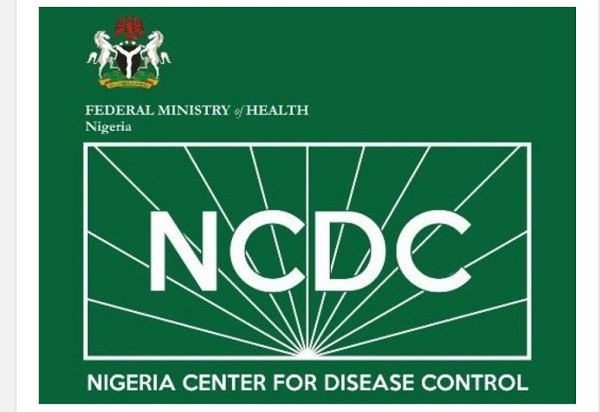
The Nigeria Centre for Disease Control and Prevention (NCDC) has unveiled the National Sequencing Consortium to strengthen public health security in the country.
During the inauguration in Abuja, director-general of NCDC, Dr. Jide Idris stated that the consortium was an initiative set to revolutionise the nation’s public health infrastructure.
Genomic sequencing is a process where scientists read and map out all the DNA in an organism, such as a human being.
DNA is akin to a lengthy instruction manual inside our bodies that directs our cells on how to function. By sequencing the genome, scientists can comprehend the exact order of the “letters” (A, T, C and G) in this manual.
This aids in discovering more about genetic diseases, developing better treatments and even enhancing crops and livestock for improved agriculture.
Idris mentioned that the launch of the National Genomic Sequencing Consortium signified President Bola Ahmed Tinubu’s commitment to advancing public health and leveraging cutting-edge science to enhance the health of Nigerian citizens.
“This initiative aims to fortify Nigeria’s health security and position the country as a key player in global genomic research,” he stated.
He underscored the importance of genomic sequencing in the swift identification and characterisation of pathogens, disease surveillance, and outbreak detection, enabling precise public health interventions.
“The pandemic emphasised the need for effective genomic data management, now recognised as critical for national security with significant economic and diplomatic implications.
“Historical challenges in genomic data sharing within Nigeria, particularly in the private sector and academia, have led to data loss and missed opportunities. Nigeria also lacks a centralized national genomic data repository.
“The new strategy aims to enhance connectivity between disease control programs and surveillance networks. Investments made during the pandemic to upscale laboratory capacities have yet to be fully utilized due to limited synergy among programmes.
“The National Genomic Sequencing Consortium will coordinate and oversee the implementation of surveillance strategies, fostering collaboration and resource sharing among researchers and institutions.
“It will also standardise data collection and analysis and provide educational resources for researchers,” he highlighted.
He mentioned that this initiative was a pivotal step towards enhancing Nigeria’s public health laboratory functions and establishing the country as a strategic hub for genomic research.
Director of the African Centre of Excellence for Genomics of Infectious Diseases (ACEGRID), Prof. Christian Happi through his representative Prof. Anise Happi, highlighted the significant strides and challenges faced in genomic sequencing in Nigeria.
Happi identified key challenges as; “Handling the vast data generated by genomic sequencing requires specialised skills. There was a notable gap in trained professionals, leading to analysis bottlenecks and delays in outbreak responses.
“Many graduates lacked the necessary bioinformatics expertise, causing valuable data to remain underutilised. Addressing this knowledge gap was essential for advancing ACEGRID’s work.
“Continuous maintenance of genomic sequencing instruments was hampered by a lack of technical experts and biomedical engineers. Equipment malfunctions led to significant delays in research.
“High costs and unreliable supply chains for essential materials posed significant challenges.
“Sequencing consumables were expensive and difficult to procure, with personalised medicine costs reaching at least $500 per sample, raising concerns about accessibility on a larger scale.
“Identifying pathogens was not enough; findings needed to be translated into actionable public health strategies. A framework was necessary to ensure research-informed public health policies and interventions effectively,” he highlighted.
He said that ACEGRID aimed to extend its work beyond discoveries to practical applications that could save lives, highlighting the importance of overcoming these hurdles for the advancement of genomic research and public health in Nigeria.
Providing an overview of genomic sequencing in Nigeria, Prof. Sunday Omilabu, a professor of virology, said that during the COVID-19 pandemic, the advantages of sequencing pathogens of infectious diseases became more apparent than ever.
Omilabu said that the potential was immense: genomic sequencing enables scientists to uncover the mysteries of disease prevention, debunk myths and stigma associated with disease outbreaks.
He noted that it allows governments to implement real-time, targeted, and often cost-effective interventions.
He said with the ongoing emergence and spread of infectious diseases, there was a need for the country to increase its sequencing capacity and build a critical mass of skilled human resources in the field of pathogen genomics and bioinformatics.
Also speaking, Dr. Clement Maseko of the National Veterinary Research Institute, Vom, Plateau State, said that the consortium would play a vital role in bolstering the country’s ability to monitor, respond to and mitigate the impact of infectious disease threats. He said that the collective expertise of consortium members would inform evidence-based policymaking related to infectious disease control and prevention.
He said that collaborative initiatives would provide opportunities for capacity building and knowledge exchange among participating institutions.
“This strengthens the genomic surveillance infrastructure and enhances the expertise of personnel involved,” he said.

